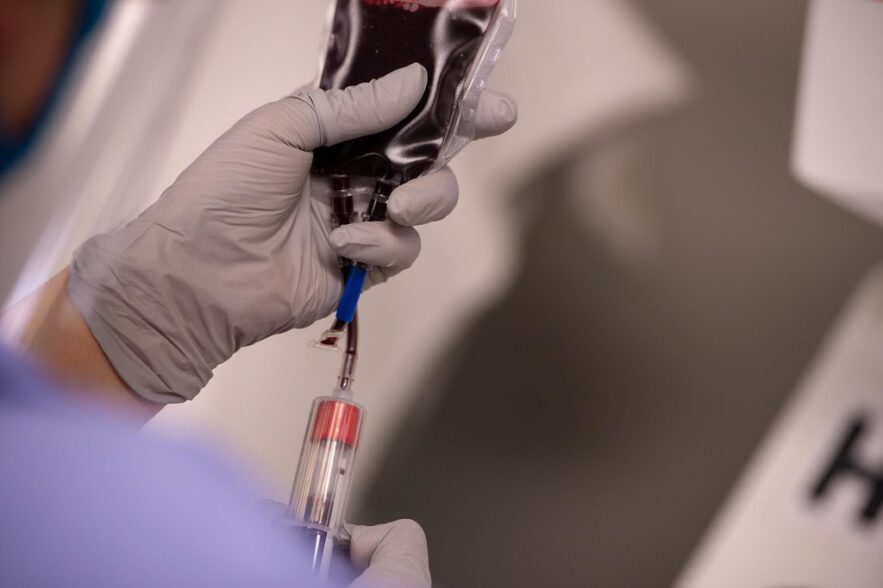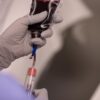Antibodies are key to fighting COVID-19, but between convalescent plasma, monoclonal antibody drugs and vaccines, how and when you get those antibodies matters.
All three of these treatments produce antibodies designed to recognize SARS-CoV-2, the virus that causes COVID-19, and help your immune system fight it before it wreaks havoc on your lungs and other organs. However, they are not all created equally.
What exactly are antibodies?
Antibodies are proteins that your immune system develops in response to a perceived infection (“perceived,” because it’s also possible for your body to develop them in response to your own cells, which is what happens in autoimmune diseases). Before your body can mount an immune response to a virus, bacteria, parasite or even vaccine, it needs to be able to identify those cells in your body, so it knows to attack them and not you. That’s where antibodies come in.
Once your body “sees” a pathogen, it creates antibodies that bind to parts of its specific shape. These antibodies circulate around your blood until they find the pathogen. When they do, the antibodies grab on to the virus and yell, “I found it! Come destroy it!” to the rest of your immune system. In some cases, the antibody itself can neutralize the virus. For example, some antibodies bind to the “spike protein” of the COVID-19 virus. The virus needs this protein to enter our cells. So if an antibody binds to it the virus may no longer be able to damage our tissue.
The problem is your body can’t make antibodies for a particular infection until it knows what it looks like, and many pathogens, including the one that causes COVID-19, have developed strategies to evade immune detection. This means that by the time your immune system starts making antibodies, your body may already be overwhelmed by the virus. All three treatments — convalescent plasma, monoclonal antibodies and vaccines — aim to speed up your body’s ability to identify and fight the virus.
Convalescent Plasma
After a person is infected with — and survives — COVID-19, their blood is full of antibodies specific to the SARS-CoV-2 virus. The idea behind convalescent plasma is to take some of these antibodies from a recovered COVID-19 and put them into a person who is struggling to fight the disease, in hopes of bolstering that patient’s immune response. Instead of directly infusing one person’s blood into another, scientists isolate convalescent plasma — an antibody-rich liquid — from the survivor’s blood and infuse that alone into the patient’s body. Scientists can’t isolate just those antibodies that fight COVID-19, so the person receiving the plasma will receive an infusion of all the antibodies that fight all the diseases that the donor has developed in his or her lifetime, along with a variety of COVID-19 antibodies — some of which are more helpful than others.
The technique has been used for over a century to fight diseases like the measles and the Spanish flu, but sometimes it works better than others. In those past instances, we didn’t have randomized controlled trials to confirm how effective the treatment was.
In August, the Food and Drug Administration (FDA) announced an emergency use authorization for convalescent plasma against COVID-19. Studies of its use to treat COVID-19 so far have yielded mixed results, but it seems that the key may be getting the treatment to patients fast enough. A study published on January 6, 2021 in the New England Journal of Medicine showed that the treatment can reduce the risk of severe illness when given to patients 75 or older or 65-74 with a coexisting condition, within 72 hours of COVID-19 symptoms starting.
Monoclonal Antibodies
Monoclonal antibodies are a beefed-up version of convalescent plasma. When a scientist takes plasma directly from a survivor, there’s no guarantee about what they’ll get. Every person’s plasma is different: you never know exactly how much of which antibodies you’re getting.
Plus, it’s hard to gather enough convalescent plasma to treat a large population. Rather than rely on individual blood donations from survivors, researchers at Regeneron and Eli Lilly worked early in the pandemic to identify the most effective antibodies and then recreate them in a lab. They created “antibody cocktails” — combinations of several antibodies thought to be the most effective against COVID-19. When given early in the disease process, or even right before exposure, as Eli Lilly recently reported, they can help prevent the worse outcomes by helping our bodies fight.
Eli Lilly received emergency use authorization on Nov. 9, 2020. Regeneron’s antibody cocktail was given the same designation days later on No. 21. These drugs are not for patients who are hospitalized due to the severity of COVID-19 or using oxygen. They’re only beneficial before a patient gets to this point.
On Jan, 21, 2021, Eli Lilly reported that its monoclonal antibody cocktail prevented COVID-19 if administered shortly before exposure. The scientists gave the treatment to patients and staff at nursing homes with active outbreaks. Among those who received the treatment, symptomatic infections were reduced by 57%. In the patients alone, symptomatic infections were reduced by 80%. Regeneron reported similar results on Jan 26.
“Of course, I think the vaccines are more effective than prophylaxis and likely longer lasting,” Daniel Skovronsky, Lilly’s chief scientific officer, emphasized in an interview. “So this should not be seen in any way as competition to vaccines. It should be for when it’s too late, when there’s an outbreak, people are getting exposed, and there’s not going to be time for a vaccine to work.
So far, possible side effects include anaphylaxis and infusion-related reactions, nausea, chills, diarrhea, dizziness, headache, shortness of breath, itching and vomiting. Most of which are typical immune-system responses.
Vaccines or Convalescent Plasma
Rather than infuse or inject a person with antibodies that came from another person or a lab, vaccines expose people to an inactivated virus or piece of a virus so that they can make their own antibodies. Of the three, this is the only treatment thought to help you create longer-term immunity (the length of which is not yet clear for COVID-19, but is likely at least a few months). Because your body is making the antibodies and coordinating the rest of the immune response itself, it retains the memory of how to do so even if the number of antibodies in your body wanes over time.
However, it takes time for your body to build enough antibodies and other immune cells to fight the infection after vaccination. For the two mRNA-based vaccines, made by Pfizer and Moderna and approved in the US, patients have between 52% and 80% protection, respectively, about a week after the first dose, and 95% immunity two weeks after the second. (See our vaccine FAQs for more info on mRNA vaccines and the efficacy of each dose.) A vaccine won’t help if you’re already infected because your body is then in the process of fighting off the infection and it takes too long to build immunity.
Convalescent plasma and monoclonal antibodies are the most effective early in the infection. A vaccine must be administered weeks before exposure to the virus, so the body has the time to train the immune system to prepare for an infection.






